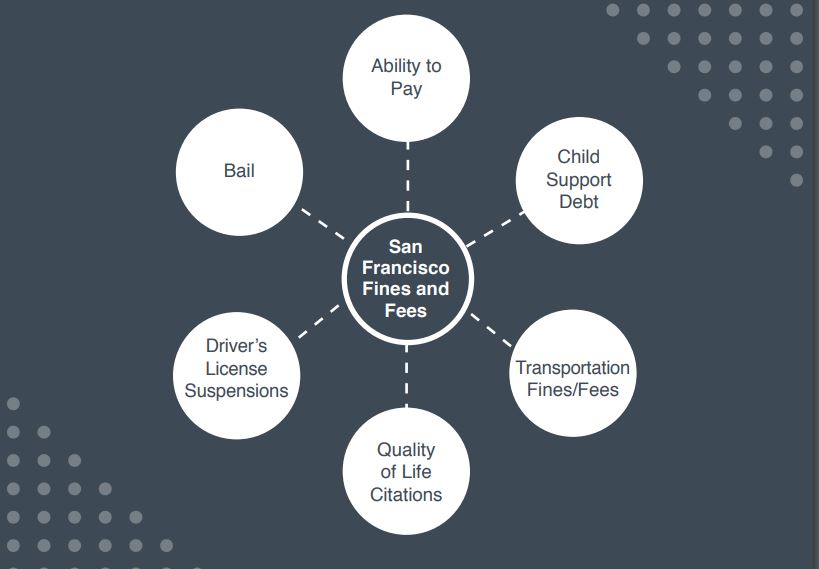Dear Friends,
One year ago today, Treasurer José Cisneros announced in the San Francisco Chronicle that San Francisco would be the first city in the nation to launch a Financial Justice Project to alleviate the inequitable burden that tickets, fines and fees can place on low-income San Franciscans.
What a year it's been. It's been a year of "firsts" for San Francisco, and for California. And San Francisco leadership mattered.
In May, we released our initial findings and recommendations from our countywide Fines and Fees Task Force. You can read some of the highlights below, and our full progress update here.

California became the first state in the nation to stop the suspension of Driver’s Licenses for inability to pay. The San Francisco Superior Court was the first county court in the state to end this practice. In California, over 4 million people have had their license suspended for unpaid court debt.
California became the first state in the nation to stop charging fees to the parents of children who are incarcerated in juvenile halls. San Francisco was the only county in California to never charge these fees.
The San Francisco Municipal Transit Agency (SFMTA) is advancing reforms to make it easier for low-income people to pay off parking tickets, clear Muni fare evasion citations, and pay off tickets through community service. Bay Area Regional Transit (BART) is including non-monetary penalties for youth, community service, and alternative payment options in their new fare evasion program.
The SF Superior Court and other City and County Departments are advancing Ability To Pay processes that offer discounts and reductions to low-income San Franciscans.
We also made progress to minimize our reliance on money bail. We released a report on bail, which estimates that up to $15 million a year is stripped in nonrefundable bail fees from low-income people and communities of color. San Francisco increased funding for a variety of cost-effective alternatives to bail this year, and the report was referenced by advocates and the Superior Court of California in calls for statewide reform.
We are advancing reforms to decrease the inequitable impacts of ticketing people who are struggling with homelessness, and this year we’ll be launching a pilot program to relieve the financial burden of child support debt owed to the government by low-income parents when they cannot afford to pay.
Our work is not done. We are so proud that San Francisco is the first city in the nation to take on this problem. And we are grateful for our partnerships with many community organizations, City and County Departments, the San Francisco Superior Courts. We are especially thankful to all our partners on the SF Fines and Fees Task Force for their insight and collaboration.
One year later, we are even bigger believers that government should be an equalizer of opportunity, not another driver of inequality.
Yours in Financial Justice,
Anne & Christa
